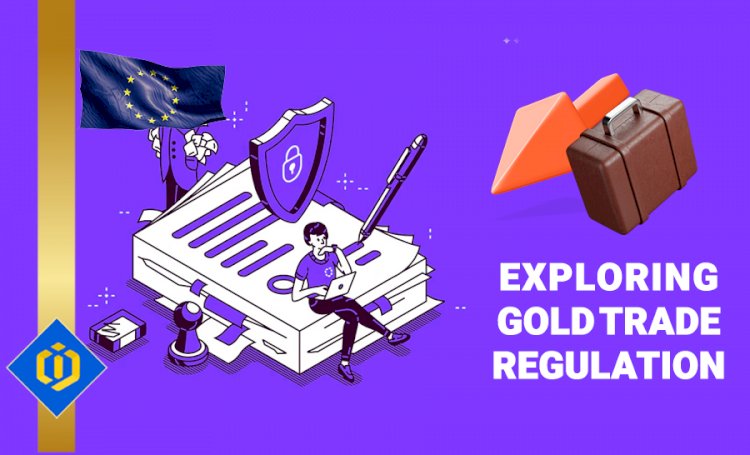Gold Trade Regulation and Licensing in the EU

Regulations on the EU Gold Trade The EU has a variety of laws and regulations that differ from one country to the next. The European Securities and Markets Authority (ESMA) is the main authority in charge of regulating gold trading in the EU. EU financial markets must operate in a fair, open, and secure manner, and ESMA is in charge of making sure that happens.
Know-your-customer (KYC) and anti-money laundering (AML) requirements are just two of the rules that ESMA has established for gold traders in the EU. According to these rules, gold dealers must confirm the identity of their clients and report any suspicious transactions to the law.
The Market Abuse Regulation (MAR), which is another EU initiative, is applicable to all financial instruments traded on EU-regulated markets. MAR seeks to stop market abuse, such as insider trading and market manipulation, and to make sure that financial markets operate fairly and openly.
Trading in gold in the EU Requires a license, which must be obtained from the appropriate national regulatory body. To ensure that the trader complies with the necessary standards and requirements, the regulatory authority will review the trader's comprehensive application as part of the licensing process.
Gold traders must prove they are knowledgeable about the gold market, have relevant experience, and have established suitable risk management and compliance procedures in order to be granted a license. To confirm their moral character, the regulatory body also runs background checks on the owners and management of the gold trading firms.
Once a license has been granted, gold traders must abide by the rules and laws outlined by the regulatory body. They must also go through routine audits and inspections to make sure they continue to meet the requirements.
Regulation and Licensing of Gold Trade: Impact on the Global Gold Market The EU's regulation and licensing of gold traders has a big impact on the world gold market. In order to maintain the integrity and security of the gold trade, the EU, which contributes significantly to the global gold market, has strict rules and licensing requirements for its gold industry.
The EU contributes to the transparency and security of the gold trade by establishing rules and license requirements. By preventing fraud and other illegal activities, this helps to uphold the gold market's integrity.
In addition, the stringent rules and licensing requirements of the EU give confidence to foreign investors and customers who want to participate in the gold trade. As a result, the market for gold trading is made stable and secure, which encourages more investors to participate.
In conclusion, it is crucial for traders, investors, and policymakers to understand the regulations and licensing requirements in the EU because they have a significant impact on the global gold market. The EU contributes to maintaining the integrity of the gold market, preventing fraud and illegal activities, and giving assurance to foreign clients and investors by regulating the gold trade in a transparent and secure manner.

 content-team
content-team 


















